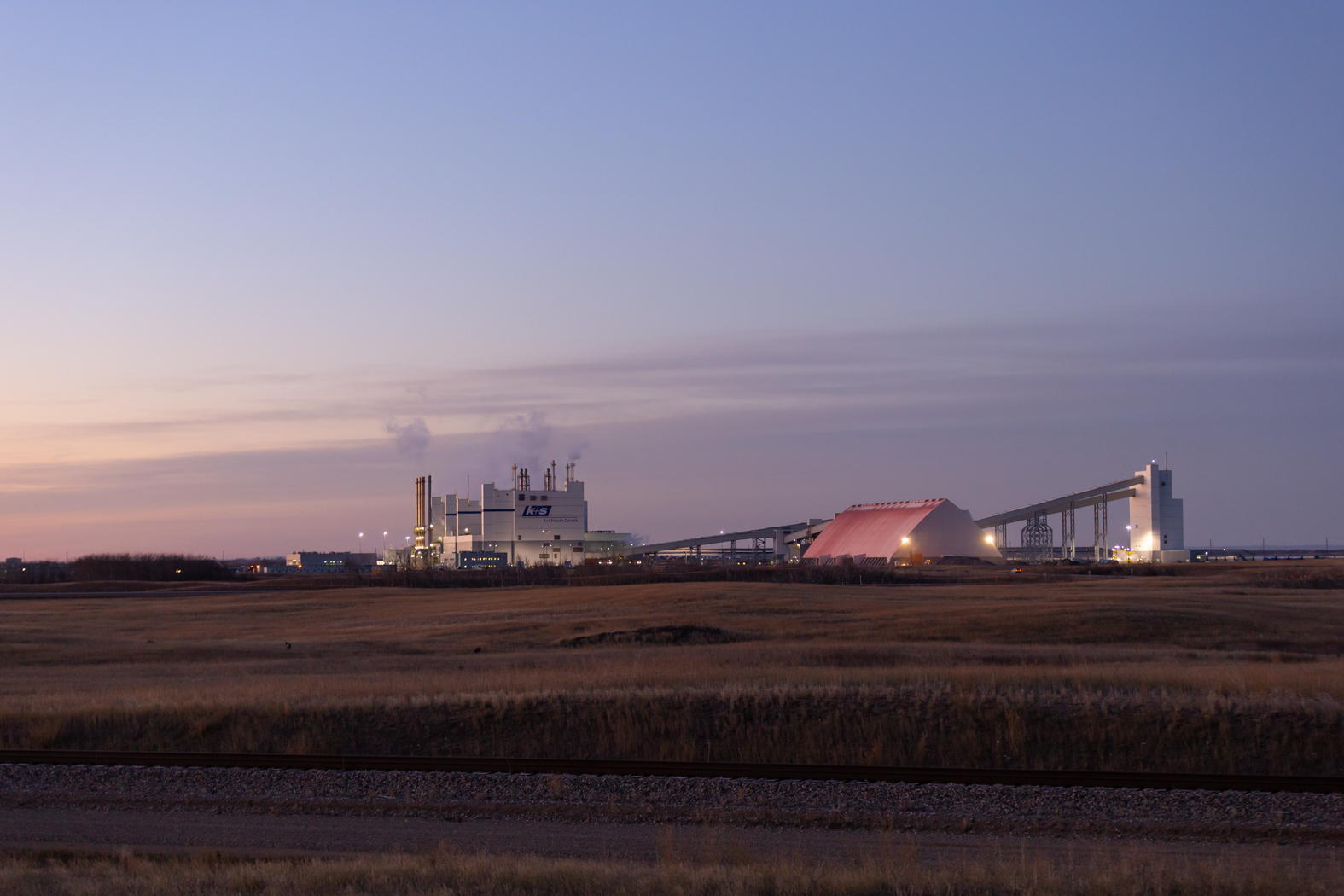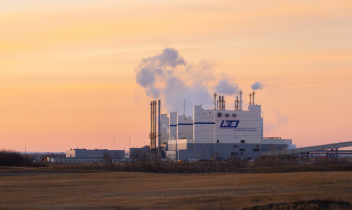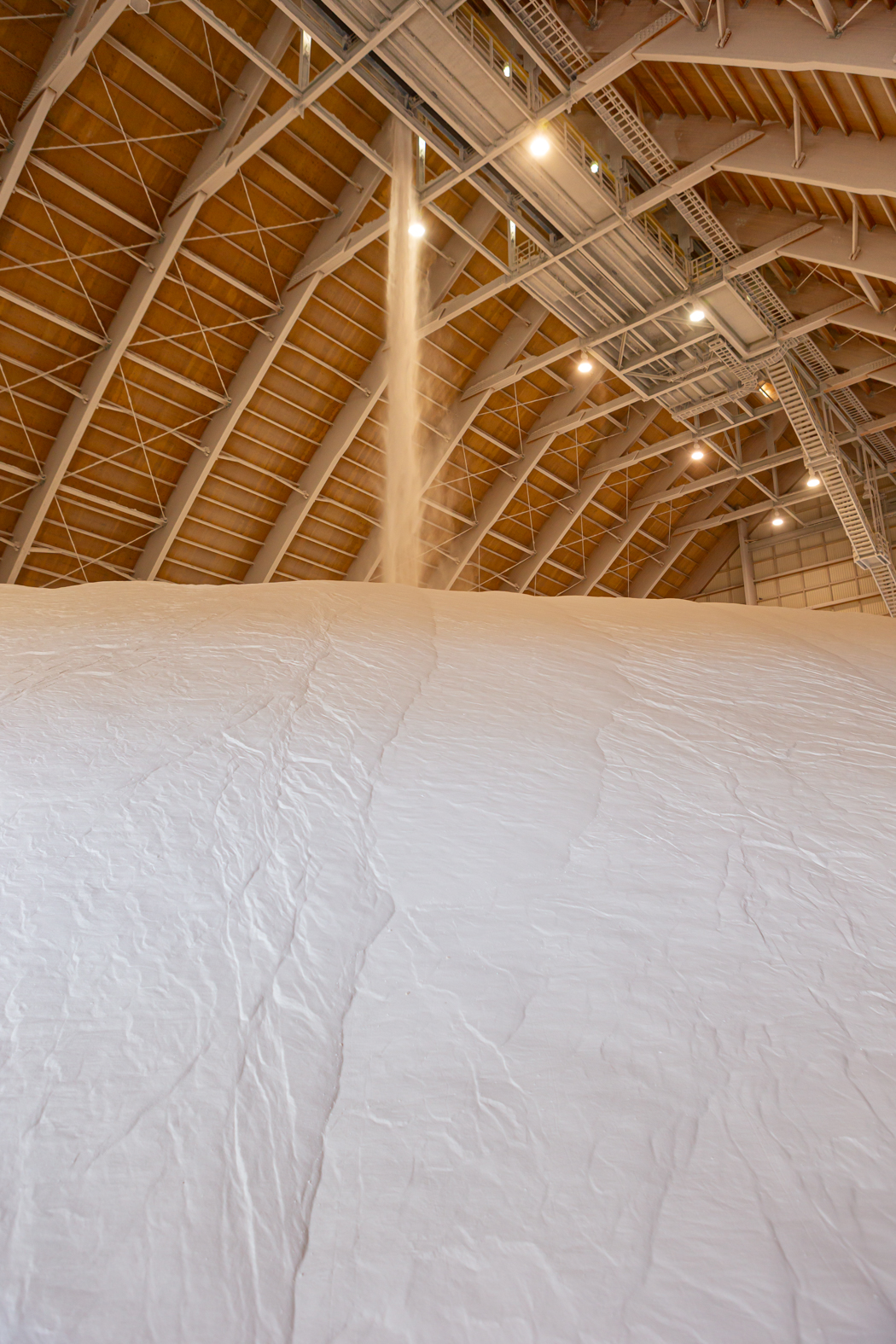At our Bethune solution potash mine near Moose Jaw, Saskatchewan, K+S Potash Canada extracts potash crude salt which is further processed into two types of potassium chloride. Our products are used as natural fertilizers and compacted for use in a variety of industrial applications.
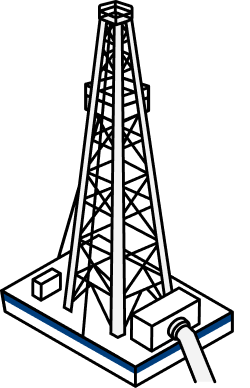
01
Solution Mining
Solution Mining
In solution mining, water is used to dissolve potassium chloride (KCl) and sodium chloride (NaCl) from an underground mineral bed called sylvinite.
The process works by drilling wells into the sylvinite bed, and pumping water down to dissolve the minerals. The resulting brine (water mixed with dissolved minerals) is brought back to the surface. Now it is ready for processing.
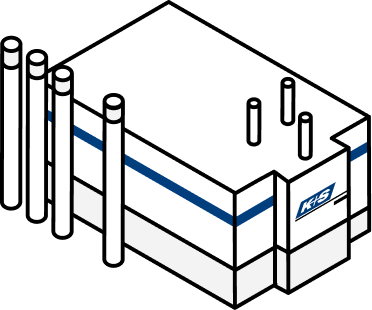
02
Refining & Processing
Refining & Processing
At the plant the brine is processed to separate KCl (potash) from NaCl (waste salt) through evaporation and crystallization (either in the plant through use of heat/steam or in the cooling pond where it is recovered with a dredge).
From there the product is dried and compacted for the granular product. Finally, it is screened, stored and shipped.
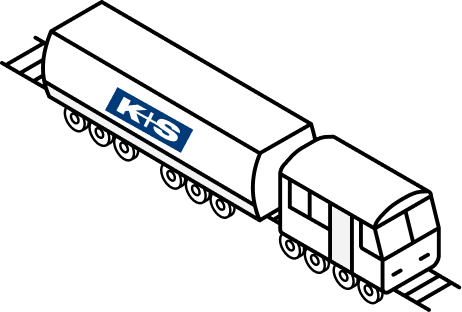
03
Distribution
Distribution
Through partnerships with Canadian Pacific Kansas City (CPKC) and Pacific Coast Terminals, K+S is able to distribute domestically and globally.
Potash bound for Port Moody is transported by CPKC from the Bethune mine.
Pacific Coast Terminals handles approximately 1,800,000 tonnes (and growing) of solid bulk potash on behalf of K+S Potash Canada.
Our products are then sold globally through our vast distribution network managed by K+S North America.

04
Crop Production
Crop Production
Potash refers to a group of minerals and chemicals containing potassium, an important ingredient in fertilizer.
Potash’s use in fertilizers helps to support plant growth, increase crop yield, strengthen disease resistance and enhance water preservation.
There is no substitute for potassium; it is an indispensable element in plant growth, and an essential nutrient for humans and animals.
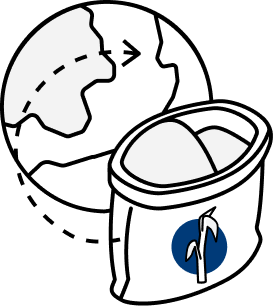
05
Soil to Table
Soil to Table
By 2050, on decreasing farmland, yields will have to increase by 70% in order to feed the world’s growing population.
This is our legacy
Canada is the largest producer and exporter of Potash in the world, contributing over $18 billion to Canada’s economy.
Learn about our operations
Our employees enable farmers to provide nutrition for the world, deliver solutions that keep industries going, and improve daily life for consumers.
